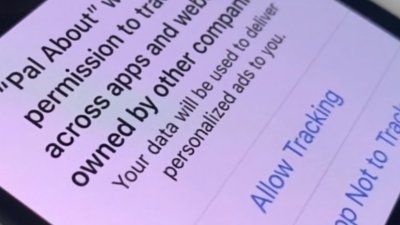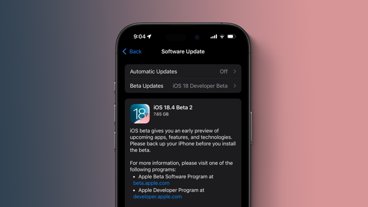Senator Elizabeth Warren has publicly sided with Beeper in the public fight over iMessage access, using the issue to try and continue to push an anti-Big Tech agenda that has little relevancy in this particular matter.
Apple's decision to close down access to Beeper Mini and prevent the Android app from working on the iMessage network has reached the ears of U.S. lawmakers. In possibly the first noteworthy comment by a senator on the matter, it has been used as an opportunity to attack Apple, albeit with a bit of flawed logic.
Posted to X on Sunday, Senator Elizabeth Warren (D-MA) starts her response by confirming a fact. "Green bubble texts are less secure," Warren offers, which is true since green texts are unencrypted text messages, unlike the end-to-end encrypted blue ones.
Green bubble texts are less secure. So why would Apple block a new app allowing Android users to chat with iPhone users on iMessage? Big Tech executives are protecting profits by squashing competitors.
— Elizabeth Warren (@SenWarren) December 10, 2023
Chatting between different platforms should be easy and secure. https://t.co/fHAS5ckaEA
"So why would Apple block a new app allowing Android users to chat with iPhone users on iMessage?" the senator asks before offering her own take. "Big Tech executives are protecting profits by squashing competitors."
Warren signs off the tweet by adding "Chatting between different platforms should be easy and secure."
Given the nature of Twitter/X, and the general lack of technical awareness by politicians, it's not clear if she's aware that Apple will be adopting RCS in 2024, and petitioning for an encryption standard.
Not quite correct
The post is largely an opportunity for Warren to try and attack Apple over ongoing efforts to increase regulation of so-called big-tech companies. It also ignores the actual issue of the situation itself.
Beeper Mini, the Android app, allowed Android users to communicate with iPhone users over Apple's iMessage network. To accomplish this, the app had to pretend to be an Apple device and provide fake credentials to Apple's servers, allowing messages to be passed to and from the Android device.
After cutting off Beeper Mini's access to its servers, Apple confirmed it had taken steps to "protect our users" by blocking techniques that "exploit fake credentials" to access iMessage. Doing so keeps the network secure, with Apple claiming the techniques "posed significant risks to user security and privacy."
While Beeper claimed its app was secure, using end-to-end encryption between participants just as iMessage normally does, the claim can only go so far. Apple cannot easily know that the app is working securely beyond the receiving of messages on Android hardware, something it can do on iOS by tightly controlling the main app and the entire ecosystem.
Since Apple cannot possibly ensure the security of iMessage via an Android app that's faking credentials to pretend to be an iPhone, it has worked to block off the app from the network.
Beeper founder Eric Migicovsky responded on Friday to Apple's block, asking that if Apple cared about privacy and security of iPhone users, asking "why would they stop a service that enables their own users to now send encrypted messages to Android users, rather than using unsecure SMS?" Again, Migicovsky's question can be answered for exactly the same reason: Apple cannot guarantee security of communications once it's off its ecosystem.
Warren can conceivably be credited for knowing about green messages being less secure than blue ones. The insistence of "secure" chats between different platforms is also a plus for her message.
However, the complaint about Apple blocking an app over iMessage misses why Apple blocked the access in the first place. Apple says it's for security, but Warren believes it's a profit protection measure.
Continuing the wrong fight
Warren's message is less a chance to urge Apple to change its messaging network, and more of an attempt to use the dispute to score political points against Apple.
The senator has repeatedly attacked Apple and other so-called Big Tech companies, urging for more regulation to curb the influence of the multinationals. This has included urging Congress to create new laws to manage the largest tech companies, as well as attempts to introduce rules to ban merger deals valued at over $5 billion, to try and prevent anticompetitive activity.
Senator Warren is also known to have called for companies including Apple to be broken up into smaller versions, even if doing so impacts the security of the company's own platform.
 Malcolm Owen
Malcolm Owen







-m.jpg)






 William Gallagher
William Gallagher
 Brian Patterson
Brian Patterson
 Charles Martin
Charles Martin




 Christine McKee
Christine McKee







31 Comments
Shes right you know. All this has just proven that there are no technological reasons to stop this. Only financial ones
She's a boomer. Those types don't do well with technology. Her and her staff need to educate themselves before posting the nonsense.
Warren has some good positions on some things, but she seems to think that you can’t become a big player without abusive business practices.